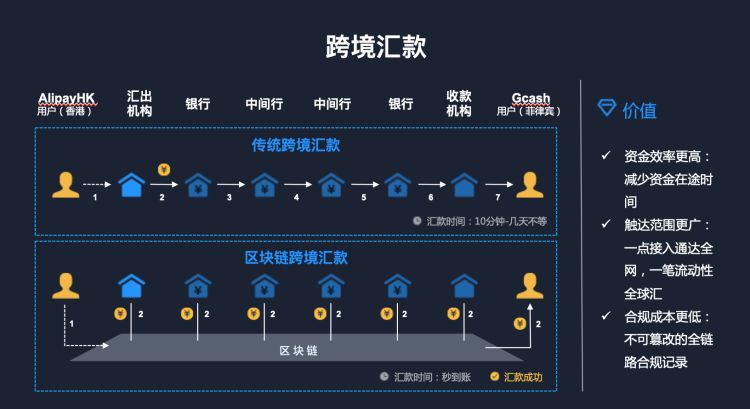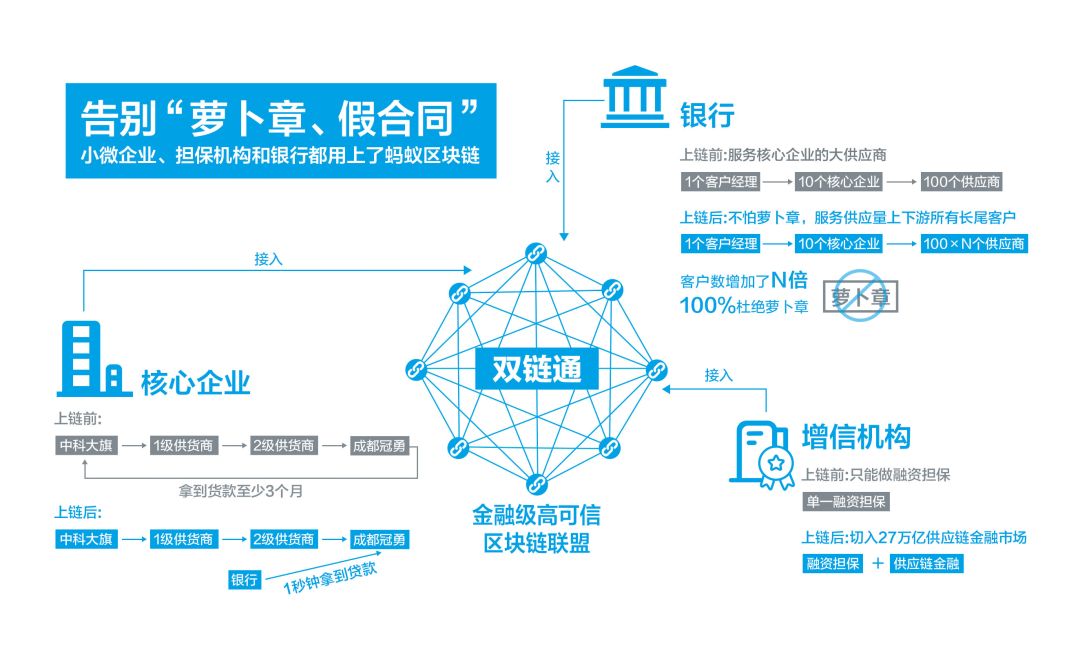In 2020, blockchain technology will land in these six areas!
Source: 52cbdc
When we say "blockchain" technology, it usually means revolutionary innovation. With the development of blockchain technology, more and more industries have followed this trend and started to research or adopt blockchain technology. 2020 is a crucial year for the development of blockchain technology. According to the 52CBDC card, the application of blockchain technology will make breakthroughs in these six aspects.
Financial institutions have used blockchain-based applications to improve their work efficiency and transparency. According to related reports in Forbes, at least 80% of banks are currently researching or developing proprietary blockchain solutions to ensure the security of their assets. But this process is destined to be slow. At present, the application of blockchain in finance is still in the trial stage, and it has not completely landed. However, based on current trends, the financial industry will surely shift blockchain technology from experiments to large-scale commercial blockchain development around 2020.

- Blockchain Security Monthly Report | 11 security incidents occurred in February, with a loss of 48.23 million US dollars
- Data Direction 丨 BTC price trend from the fundamentals, market, sentiment and technology
- Analysis: halving is coming, Bitcoin may face greater volatility
In addition to the financial industry, the government sector is close behind. At present, IBM is working with the Dubai government to provide a smart contract system based on the hyperledger technology platform to optimize the maritime cargo transportation process through UAE ports and improve efficiency. According to relevant data, the total value of UAE imports and exports has reached about 350 billion US dollars. It is expected that in 2020, Dubai officials plan to transfer all their transactions to the blockchain!
Because blockchain technology is anonymous and non-tamperable, it also naturally fits in matters such as public voting. Obviously, once a transaction or a vote is recorded on the blockchain, it is almost impossible to tamper with it. This is one of the ways that blockchains promote fair voting.

Currently, a company called Votem has tested its system in several private elections, including the Ohio State Bar Association and the Rock and Roll Hall of Fame voting process using the company's blockchain voting system. I believe that in the near future, we will see more similar blockchain voting systems.
Real estate and blockchain technology have a natural fit. According to forecasts, the first blockchain-based real estate lease contract will appear in 2020. Real estate leasing contracts based on blockchain technology can effectively prevent contract fraud and other phenomena, and can also speed up the process of real estate purchase and sale. At the same time, make transactions cheaper, cheaper, and more secure.
One of the technical advantages of the blockchain is that it can ensure that data is difficult to be tampered with and that the data is open and transparent. This allows anyone who uses the blockchain services to use their data assets with confidence. At the same time, due to the emergence of the token, the blockchain can bypass the distribution layer and directly implement point-to-point data transmission. This is undoubtedly good news for the music and multimedia industries. At present, many media companies have started to adopt blockchain technology.
For example, streaming service providers like Spotify and Deezer are one of the representatives. Content creators need various types of contracts to maintain their copyrights while optimizing content distribution. Placing content on the blockchain can automate the entire process and pay directly to content owners.
Another good example is K.im, a digital content publishing and monetization platform. K.im helps with content ownership and control, so content creators always get paid. It provides rich features for all types of digital content (download / stream / view) and transaction privacy supported by K.im Payment.
Blockchain helps to bypass the inevitable intermediaries and allows small payments directly to artists. It is estimated that performers may lose up to 86% of their income due to content piracy. At the same time, they pay huge commissions to streaming services and record companies. Now, the blockchain allows artists distribution agencies to earn royalties on music use.
According to Gartner's report, there were 840 million IoT devices in 2017, and by 2020, this number could grow to 20 billion. Blockchain is used in IoT to help mitigate security risks, such as preventing large-scale DDoS attacks against multiple devices. The shutdown of a single device does not affect the entire pool. This is a key factor in ensuring smart cities, in which downtime is rarely tolerated and must be connected 24/7.
Supply chain management is one of the landing directions of the blockchain. Since transactions are monitored and recorded in real time, it is easy to see what is happening at each given moment. In addition, with the General Ledger and Public Ledger, users always have access to anything about their supply chain.
Currently in the supply chain field, many blockchain companies have started to develop their products. A British Provenance company says they can use its blockchain technology to "share your product journey and the impact your business has on the environment and society."

Wal-Mart is one of the users of blockchain supply chain finance. It cooperates with Tsinghua University and IBM in China to use blockchain to track the circulation of pork in China. At the same time: mining company BHP Billiton has also started to use blockchain supply chain technology to track mineral analysis performed by third-party suppliers.
We will continue to update Blocking; if you have any questions or suggestions, please contact us!
Was this article helpful?
93 out of 132 found this helpful
Related articles
- Highlights of the week: The central bank officially released the "technical security specifications for financial distributed ledger"
- Can DeFi become a solution to the difficult financing of SMEs?
- MakerDAO Risk Leader: ProgPoW may do no good to the DeFi industry
- Crypto industry talent demand grows 26%, let's see what new positions are available?
- Before the halving, do you still have the opportunity to join the "Bitcoin 1% Elite Club"?
- Market enters the stage of grinding tofu, persistence is victory
- Air currency warning: the market may be entering the sixth cottage season, beware of air players





